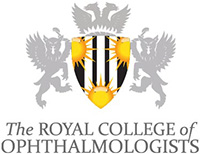Direct Observation of Procedural Skills (DOPS)
Competence in 19 of the 24 practical skills (PS) listed in the OST curriculum, and in laser surgery skills (SS14, SS15 and SS16) is assessed using a modified version of the F2 DOPS rating scale. [PS2 (refraction) is assessed by a formal College examination (refraction certificate) and by a bespoke CRS (CRSret).]
How a practical procedure is taught will be determined by the individual trainer and informed by an appropriate training the trainers course. When trainees have the opportunity to perform the procedure themselves they must do so under appropriate supervision. The supervisor will be able to complete a DOPS at the end of the procedure. If there are aspects of the procedure that are not performed satisfactorily the completed DOPS will act as a guide for training and inform the next attempt. It is expected that for some of the more complex practical procedures e.g. PS3 ‘Drugs’, a trainee will require assessment on more than one occasion (their portfolio will reflect this). Where possible a trainee will arrange to have at least 2 satisfactory DOPS for each of the relevant Learning Outcomes. Where opportunities to perform a procedure are scarce e.g. PS16 ‘Corneal glue’, it may be appropriate for the portfolio to contain only one DOPS. The ultimate decision as to how many are appropriate will be the responsibility of the ARCP panel.
Where appropriate it is useful for initial DOPS to be completed using any simulators that are available e.g. in a clinical skills centre. The DOPS form must make it clear that the assessment has been carried out using a simulator.
Trainees should also maintain a logbook of procedures performed with reflective comments where appropriate as part of their portfolio.
Where a trainee has an opportunity to perform a practical procedure that is not included in the curriculum e.g. as part of sub-specialty training, she/he is encouraged to ask the trainer to complete a DOPS for inclusion in the portfolio.
The following practical skills Learning Outcomes are assessed by DOPS:
| Learning Outcome ( LO) | Target Year (TYA)* |
Comments | |
| PS11 | Ocular surface FB | 1 | DOPS can be assessed by an appropriately trained nurse or senior OST |
| PS22 | Ocular irrigation | 1 | |
| PS8 | Lacrimal function | 2 | Tear production/tear drainage may need to be assessed separately with different DOPS |
| PS10 | Corneal scrape | 2 | . |
| PS13 | Removal of sutures | 2 | DOPS can be completed by an appropriately trained nurse |
| PS18 | Perform/teach lid hygiene | 2 | DOPS can be completed by an appropriately trained nurse |
| PS5 | Local anaesthesia | 3 | May require several DOPS for different LA techniques |
| PS14 | Fit a bandage contact lens | 3 | DOPS can be completed by an appropriately trained nurse |
| SS14 | Laser to the lens capsule | 3 | |
| SS15 | Laser for raised intraocular pressure | 3 (annual review) | May require several DOPS for different laser therapies |
| SS16 | Laser for retinal problems | 3 (annual review) | May require several DOPS for different laser therapies |
| PS6 | Diathermy | 7 | May be incorporated with a surgical OSATS |
| PS3 | Intraocular/periocular drugs | 7 | May require several DOPS for different LA techniques |
| PS7 | Cryotherapy | 7 | May be incorporated with a surgical OSATS |
| PS9 | Paracentesis | 7 | May be incorporated with a surgical OSATS |
| PS12 | Punctal occlusion | 7 | . |
| PS15 | Botulinum toxin injection | 7 | May require several DOPS for different techniques/indications |
| PS16 | Corneal glue | 7 | . |
| PS17 | Ultrasonography | 7 | . |
| PS19 | Aqueous/vitreous | 7 | . |
| PS23 | Prepare biopsy | 7 | . |
| PS24 | Forced duction test | 7 | . |
| PS25 | Biometry skills | 1, 7 | DOPSBi must be assessed by an appropriately trained consultant, senior Trust Grade or senior OST (OST4 and above) |
* The TYA represents the latest year that a trainee should normally achieve the specified LO. Trainees are encouraged to seek assessment using DOPS when an opportunity arises and not wait until the target year.
By completion of training a trainee’s portfolio may contain around 60 satisfactory DOPS forms.
